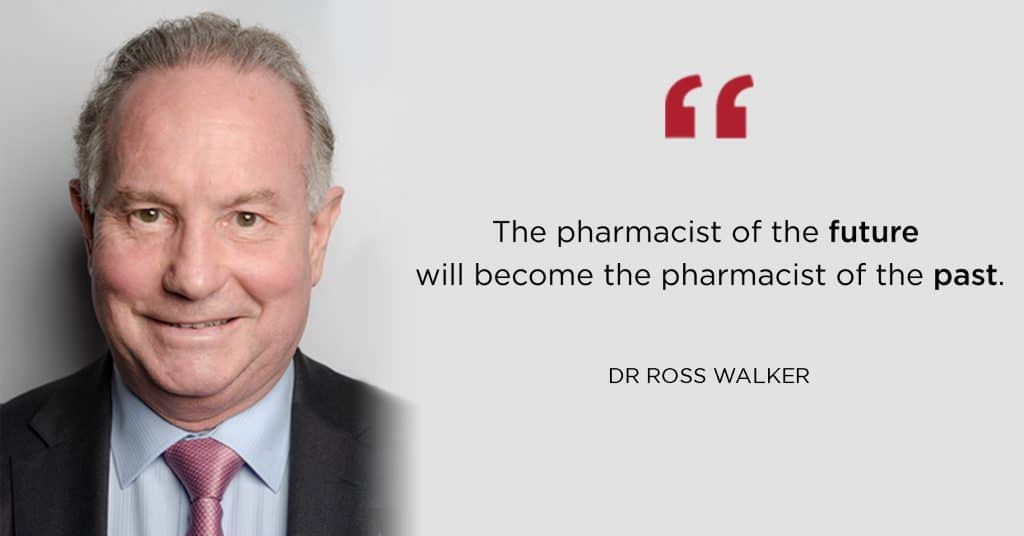The Future of Medicine | Dr Ross Walker | Health, Lifestyle and Wellbeing Speaker

Dr Ross Walker is an eminent practising cardiologist with a passion for people and health, boasting 40 years’ experience as a clinician. For the past 20 years he has been focusing on preventative cardiology and is one of Australia’s leading preventative health experts. Considered one of the world’s best keynote speakers and life coaches, Dr Walker is the author of seven best-selling books and a regular health presenter in the Australian Media. He also appears weekly on the national Macquarie Radio network and the Super Radio network.
The Future of Medicine
With the vast majority of medical news focusing on the coronavirus, much of which has been negative, I felt it important to give some good news and hope for the future.
It is my opinion that over the next 5 to 10 years the delivery of medicine will change dramatically. The pharmacist of the future will become the pharmacist of the past. Many years ago, before the incredible sophistication of the pharmaceutical industry, many pharmacists compounded medications in their own facility.
I foresee a situation where a person will go to the doctor following a full assessment of their own genome. A treatment plan will be formulated based on the person’s own genetic abnormalities and predispositions. Rather than taking a number of separate pharmaceutical pills and, for those so inclined, vitamin supplements, the doctor will administer a personalised prescription for the person. This will be taken to their pharmacist and using nanotechnology, all of these therapies will be delivered within the one small pill, taken once daily.
The technology would be advanced to the point where each separate medication within the nano-pill would be released at the appropriate time into the circulation. We are well aware that computer technology power doubles every 18 months and the advances in nanotechnology appear to be mirroring this.
On a separate, but similar note, the University of Pittsburgh has released recently in the Journal of Investigative Dermatology, a fingertip patch with 400 microneedles for vaccine delivery for live or attenuated vaccines.
The microneedles are made from three-dimensional sugar structures incorporated into what is known as a multicomponent dissolving microneedle array. Interestingly, this not only induces an antibody response but also improves the cellular response better than standard vaccines given via injection. It appears from the preliminary studies that this will induce a strong and long-lasting immunity. The researchers trialed this in mice administering a live adenovirus with encoded antigens and a specific immune stimulant to enhance the local immune response.
In the last few weeks, researchers at the University of Oxford in England have started a trial of a vaccine for the Coronavirus. It may be that in the very near future rather than the needle jab we are using these micro patches instead for all vaccines. Researchers from Harvard university in the USA are also working on a similar patch technology for the management of diabetes. The patch not only delivers insulin through the skin but also measures real-time blood sugar levels.
At present the vast majority of insulin-dependent diabetics need to constantly prick their fingers to monitor blood sugar levels and then inject themselves on multiple occasions throughout the day. Again, over the next few years the management of diabetes will be revolutionised by the use of these micro patches.
For many chronic conditions affecting millions of people, especially over the age of 50, the future of chronic medical management is very bright. When I started medical school in the 1970s our medical and surgical therapies were modestly effective and I have seen a revolution in the management of chronic illnesses, such as cardiovascular disease and cancer, over the past 40 to 50 years.
With these extraordinary advances mentioned above, which are only a portion of what we will see over the next decade, the future of medicine is looking very bright indeed.
Learn more about Dr Ross